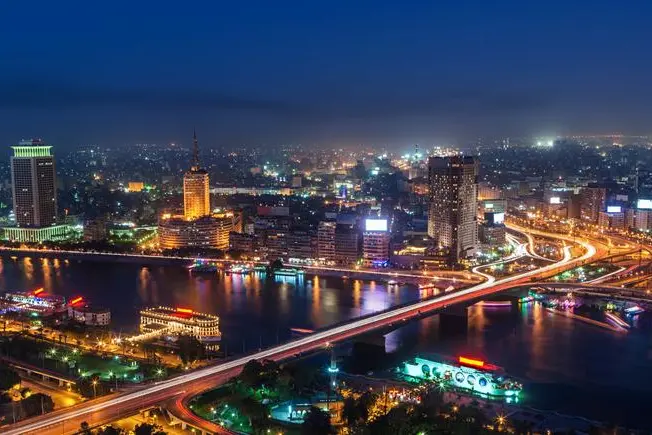PHOTO
Real Estate has always been one of Egypt’s most resilient sectors. Prior to the pandemic, the industry contributed 9.8% during the first three quarters of fiscal year 2019/2020. However, consumer buying habits throughout the economy have shifted in response to the current economic uncertainty, begging the question of will real estate remain at the epicenter of the country’s growth or should market players prepare for a demand slump?
Arab Finance sat with Ian Albert, chief executive officer of Colliers International for the Middle East and North Africa region, for a one-on-one interview, where he shared his insights on the changes in consumer behavior, market dynamics, as well as some projections that could aid developers.
How do you evaluate the real estate market performance in Egypt compared to its peers?
Egypt’s strong population base has been key to maintaining the country’s high appetite for real estate. The country, unlike other regional markets, has a strong resident population and is less dependent on expatriates, making it comparatively resilient.
Greater Cairo is also significantly undersupplied; Colliers International’s research suggests the residential market is undersupplied by nearly 450,000 units. This market gap is further stressed within the mid and upper-mid income categories.
How do you assess the government’s efforts to alleviate the impact of the virus?
The sector was primarily supported by the Central Bank of Egypt’s move to decrease the interest rates on the mortgage loans, which in return has lured investments.
Although lockdown measures were implemented, construction activity continued across all Cairo's new road projects; these included an $895 million government plan to reduce road congestion and build 40 new bridges. In addition, $142 million was spent on building road infrastructure in New Alamein City, urban development on the western side of Alexandria on the North Coast.
When it comes to developers, how well are they maneuvering the crisis?
Cairo’s real estate market is becoming more price-conscious. Real estate developers in Egypt have always been at the forefront of rolling out inventive financing programs to facilitate the purchase of properties. During the current climate, this has been enhanced with payment plans offering a down payment ranging between 5% to 15% of the overall value, with monthly or quarterly installments over seven to ten years.
Moving forward, what do you advise developers to maintain demand and performance?
Although the overall market is generally undersupplied, it is important to note that some sub-markets are oversupplied, leaving certain price points to remain undersupplied. Therefore, it is essential to identify unmet demand/ development opportunities within each sub-market. On another note, the changing demographics and lifestyle of the Egyptian consumer play a vital role when developing a community. Not only does build quality of the apartment or villa matters, but it is also the essential community elements such as the availability of targeted convenience stores, food and beverage venues, medical facilities, and schools that complete a society.
How did coronavirus impact consumer buying behavior?
The pandemic is expected to change the preferences of both homeowners and tenants. While affordability will continue to remain as one of the primary deciding factors amongst tenants and investors, well-planned communities and unit layouts that meet the need for a flexible and convenient lifestyle are expected to have more demand and higher premiums.
What are the new real estate trends or tactics that resulted from the pandemic?
We would not classify any trends as “new,” but coronavirus has put first certain characteristics in the already existing real estate landscape. Egypt has always been price-sensitive with units and post-handover payment plans. The market is also quality-driven, and gated communities with supporting social infrastructure are in demand. These elements are now even more prioritized alongside the pandemic. Such developments and communities are likely to perform much better than standalone developments with no “live, work, and play” environment within the communities.
Which sub-sectors are expected to flourish faster compared to others?
Middle and upper-middle-income sub-sectors, as this market is undersupplied and is also expected to grow further over the next 10–15 years.
Additionally, two sub-sectors are expected to grow, in line with the population growth rate, namely education and healthcare.
Egypt is building some 20 new cities thus far, how do you see the progress? What can be done to guarantee it’ll be inhabited?
The key success factors to improving occupancy levels and turning these cities from investment dormitory towns into self-sustaining urban infrastructure, where residents can live, work, play, and stay, is the development of residential projects, with mixed-use community elements, as well as industrial complexes, and job creation.
How do you evaluate the supply-demand balance in the market?
If you use the base of demand as population, this gives the impression that the broad asset classes of residential, office space, and retail are significantly undersupplied.
However, it is important to understand nuance. When the level and volume of affordability are overlayed on population, it creates market gaps – negative and positive under different categories. Colliers’ analysis suggests that mid-income and upper-mid income categories show a high opportunity for development going forward.
Why do you think some key players are starting to move to west Cairo?
West Cairo has already been successful at establishing a highly sought-after district with upper-middle and high-income residential communities alongside central business districts. The price points concerning the build quality offered are more competitive than those offered in east Cairo. These communities are also supported by purpose-built business parks, lifestyle retail notes, schools, and hospitals.
In your opinion, what’s Egypt’s position in the real estate export map? And what can be done to take up a larger share?
Real estate has been a popular investment for Egyptians living in Egypt as well as expats. However, it is not a popular export product, with approximately 2% of total transactions are made up of foreign investors.
Moving forward, second or holiday homes, especially on the coast, has the potential to target foreign investments.
What’s your forecast for the market?
Demand fundamentals are still in place and, as with every economy in the world, it will recover post-vaccine. The issue is the global dual questions of the speed of recovery and possible economic recession.
By Julian Nabil
Copyright © 2020 Arab Finance Brokerage Company All rights reserved. Provided by SyndiGate Media Inc. (Syndigate.info).





















